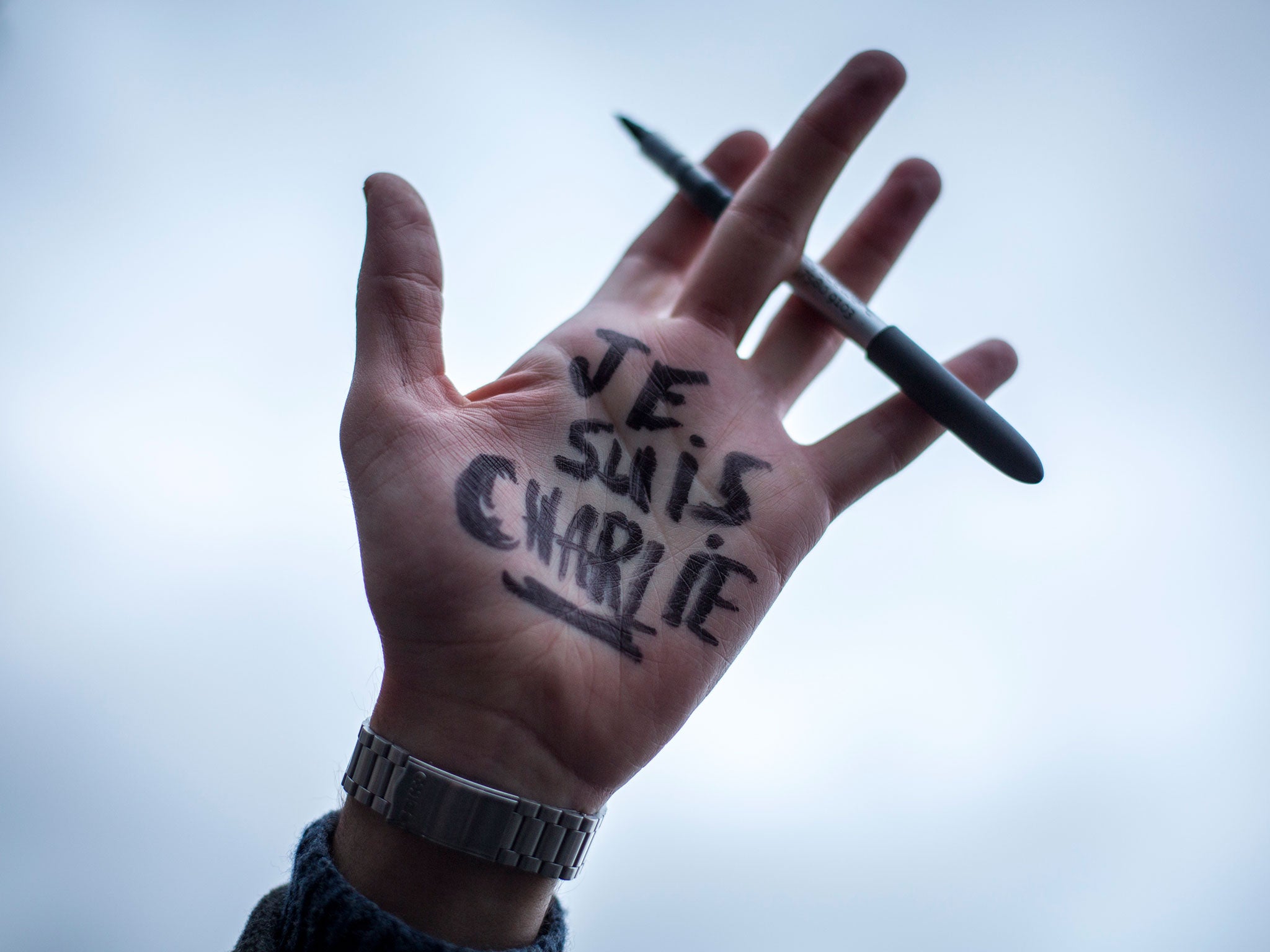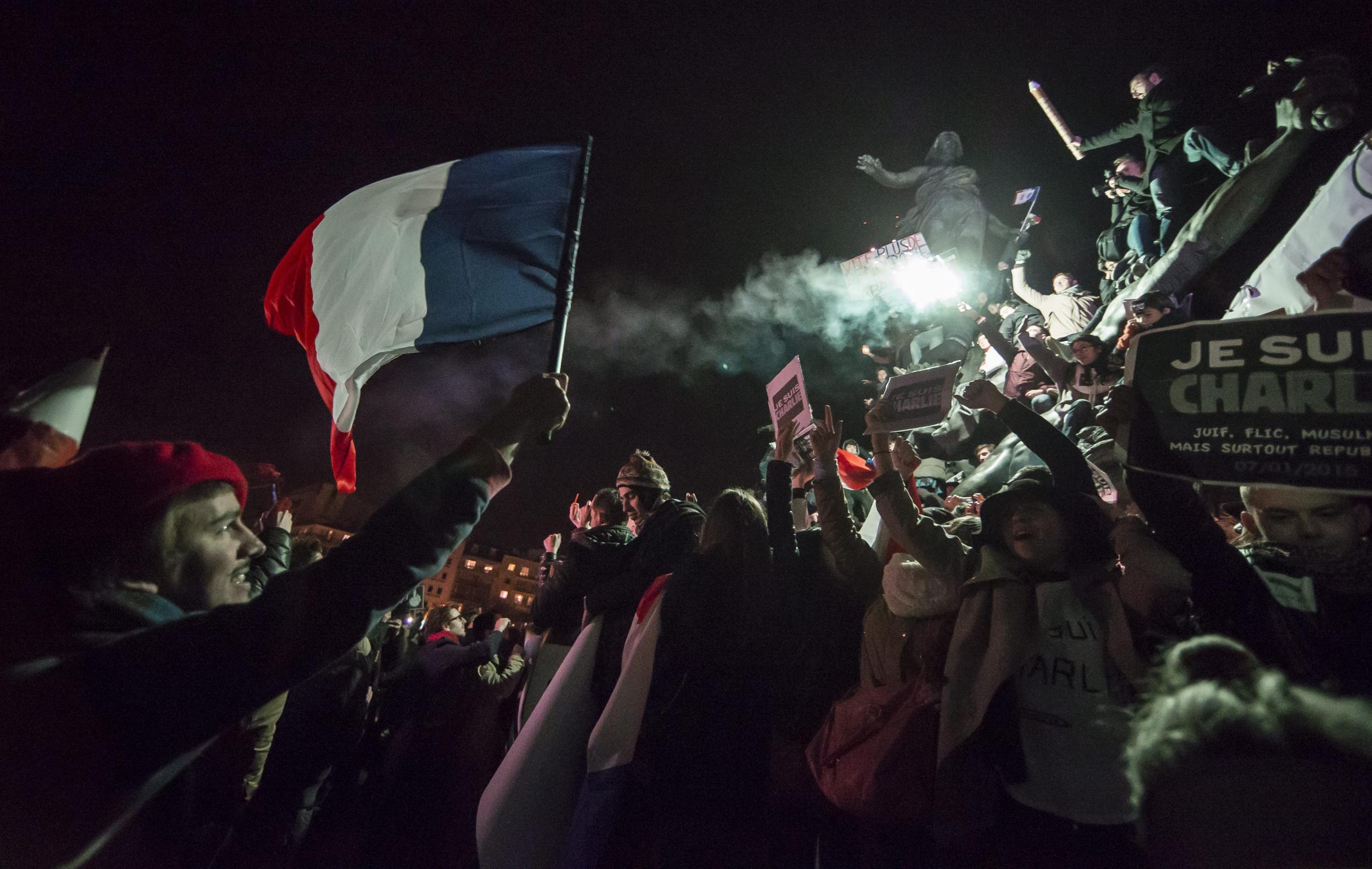Charlie Hebdo attack survivor says 'Je suis Charlie' slogan has been 'misused' in year since atrocity
The man who created the slogan said he only meant it to be an expression of solidarity

One of the cartoonists who survived the Charlie Hebdo massacre has said the slogan that united the world in the aftermath of the atrocity has been “misused”.
Corinne Rey, known as Coco, said “Je suis Charlie” was originally used to express solidarity but has lost its way.
“It's a phrase that was used during the march as a sign of emotion or resistance to terrorism,” she told France Inter radio.
“And little by little, I realised that ‘je suis Charlie’ was misused for so many things. And now I don't really know what it means.”

Ms Rey was spared by the two gunmen who ordered her to let them into the satirical magazine’s offices as she made her way to work with her young daughter.
The al-Qaeda-inspired Kouachi brothers threatened to kill her and her daughter before leaving her to watch them massacre 11 of her colleagues.
As the world rallied round the controversial magazine, which terrorists claimed they targeted because of caricatures depicting the Prophet Mohamed, people around the world embraced the expression “je suis Charlie” to express solidarity with the murdered journalists.
As a Twitter hashtag it was used more than 1.5 million times on the day of the attacks and six million times on social media over the following week, spawning “je suis Ahmed” in memory of a murdered police officer and – more controversially – “je suis Kouachi” in apparent support for the killers.

The man who invented the slogan was Joachim Roncin, the artistic director for Stylist magazine in France.
“We were in the production room working on our next issue, and at one point one of my colleagues saw reports of the shooting on Twitter,” he told BBC Trending.
“We were all shocked. I saw messages like, 'I'm horrified' and 'I'm disgusted' repeated all around the world - all of these messages of despair.
“I searched for the Charlie Hebdo logo and I looked at deeply two or three minutes and I thought about what it meant to me.”
Using part of Charlie Hebdo’s masthead, he used created a monochrome graphic reading “je suis Charlie”, posting it on Twitter for the first time at 12.52pm on 7 January 2015.
Mr Roncin said he had no idea of the impact his graphic would have and did not intend to “go viral” or create a publicity stunt.
He has turned down a raft of interview opportunities and television requests, as well as deciding not to trademark the phrase.
The journalist is also keenly aware of the way the expression has been appropriated.
“There have been very beautiful things, very funny things, but also very awful things such as “Je suis Charlie Coulibaly” or “Je suis Charlie Martel,” which came out even before the victims were buried,” Mr Roncin told Huffington Post France. “That was hard for me to believe.”
But he said that for him, the three words were not politicised and only meant to express his defiance of terror and support for democracy and freedom of expression.
“That's what I really wanted,” he added. “I very quickly detached myself from it. I didn't want it to belong to me.”
Charlie Hebdo has spent more than €2 million (£1.5 million) on security measures since the massacre, according to editor-in-chief Laurent Sourisseau.
The attack on its offices and following shootings and supermarket hostage crisis were commemorated around the world on Thursday.
The commemorations were disrupted by another suspected terror attack, when police shot and killed a knife-wielding man wearing a fake explosives vest outside a police station in northern Paris.
France has been under a state of emergency since a series of Isis shootings and suicide bombing killed 130 in the French capital on 13 November.
Additional reporting by AP
Join our commenting forum
Join thought-provoking conversations, follow other Independent readers and see their replies
Comments
Bookmark popover
Removed from bookmarks